
Today almost every branch of computer science is feeling presence of object- orientation. Object oriented technology is successfully incorporated in various fields of computer science. Since its arrival on the scene in 1995, the Java has been accepted as one of the primary programming language. This course is designed to give you exposure to basic concepts of object-oriented technology. This course will help in learning to write programs in Java using object-oriented paradigm. Approach in this course is to take Java as a language that is used as a primary tool in many different areas of programming work.
Paradigms of Programming Languages, Evolution of OO Methodology, Basic Concepts of OO Approach, Comparison of Object Oriented and Procedure Oriented Approaches, Benefits of OOPs, Introduction to Common OO Language, Applications of OOPs.
Unit 2 : Object Oriented Methodology-2Classes and Objects, Abstraction and Encapsulation, Inheritance, Method Overriding and Polymorphism
Unit 3 : Java Language BasicsIntroduction To Java, Basic Features, Java Virtual Machine Concepts, A Simple Java Program, Primitive Data Type And Variables, Java Keywords, Integer and Floating Point Data Type, Character and Boolean Types, Declaring and Initialization Variables, Java Operators
Unit 4 : Expressions, Statements and ArraysExpressions, Statements, Control Statements, Selection Statements, Iterative Statements, Jump Statements, Arrays
Class Fundamentals, Creating objects, Assigning object reference variables, Introducing Methods, Static methods, Constructors, Overloading constructors, This Keyword, Using Objects as Parameters, Argument passing, Returning objects, Method Overloading, Garbage Collection, The Finalize ( ) Method
Unit 2 : Inheritance and PolymorphismInheritance Basics, Access Control, Multilevel Inheritance, Method Overriding, Abstract Classes, Polymorphism, Final Keyword
Unit 3 : Packages and InterfacesPackage, Defining Package, CLASSPATH, Package naming, Accessibility of Packages, Using Package Members, Interfaces, Implementing Interfaces, Interface and Abstract Classes, Extends and Implements Together
Unit 4 : Exceptions HandlingException, Handling of Exception, Using try-catch, Catching Multiple Exceptions, Using finally clause, Types of Exceptions, Throwing Exceptions, Writing Exception Subclasses
Multithreading: An Introduction, The Main Thread, Java Thread Model, Thread Priorities, Synchronization in Java, Interthread Communication
Unit 2 : I/O in JavaI/O Basics, Streams and Stream Classes, Byte Stream Classes, Character Stream Classes, The Predefined Streams, Reading from, and Writing to, Console, Reading and Writing Files, The Transient and Volatile Modifiers, Using Instance of Native Methods
Unit 3 : Strings and CharactersFundamentals of Characters and Strings, The String Class, String Operations, Data Conversion using Value Of ( ) Methods, String Buffer Class and Methods
Unit 4 : Exploring Java I/OJava I/O Classes and Interfaces, I/O Stream Classes, Input and Output Stream, Input Stream and Output Stream Hierarchy, Text Streams, Stream Tokenizer, Serialization, Buffered Stream, Print Stream, Random Access File
The Applet Class, Applet Architecture, An Applet Skeleton: Initialization and Termination, Handling Events, HTML Applet Tag
Unit 2 : Graphics and User InterfacesGraphics Contexts and Graphics Objects, Color Control, Fonts, Coordinate System, User Interface Components, Building User Interface with AWT, Swing-based GUI, Layouts and Layout Manager, Container
Unit 3 : Networking FeaturesSocket Overview, Reserved Parts and Proxy Servers, Internet Addressing: Domain Naming Services (DNS), JAVA and the net: URL, TCP/IP Sockets, Datagrams
Unit 4 : Advance JavaJava Database Connectivity, Establishing A Connection, Transactions with Database, An Overview of RMI Applications, Remote Classes and Interfaces, RMI Architecture, RMI Object Hierarchy, Security, Java Servlets, Servlet Life Cycle, Get and Post Methods, Session Handling, Java Beans
This is one of the best institute for Autocad Training. I recommend everyone should study from Mohsin sir class and join his batch only, he is very knowledgeable and expert in this industry. He always explains the concepts very clearly and
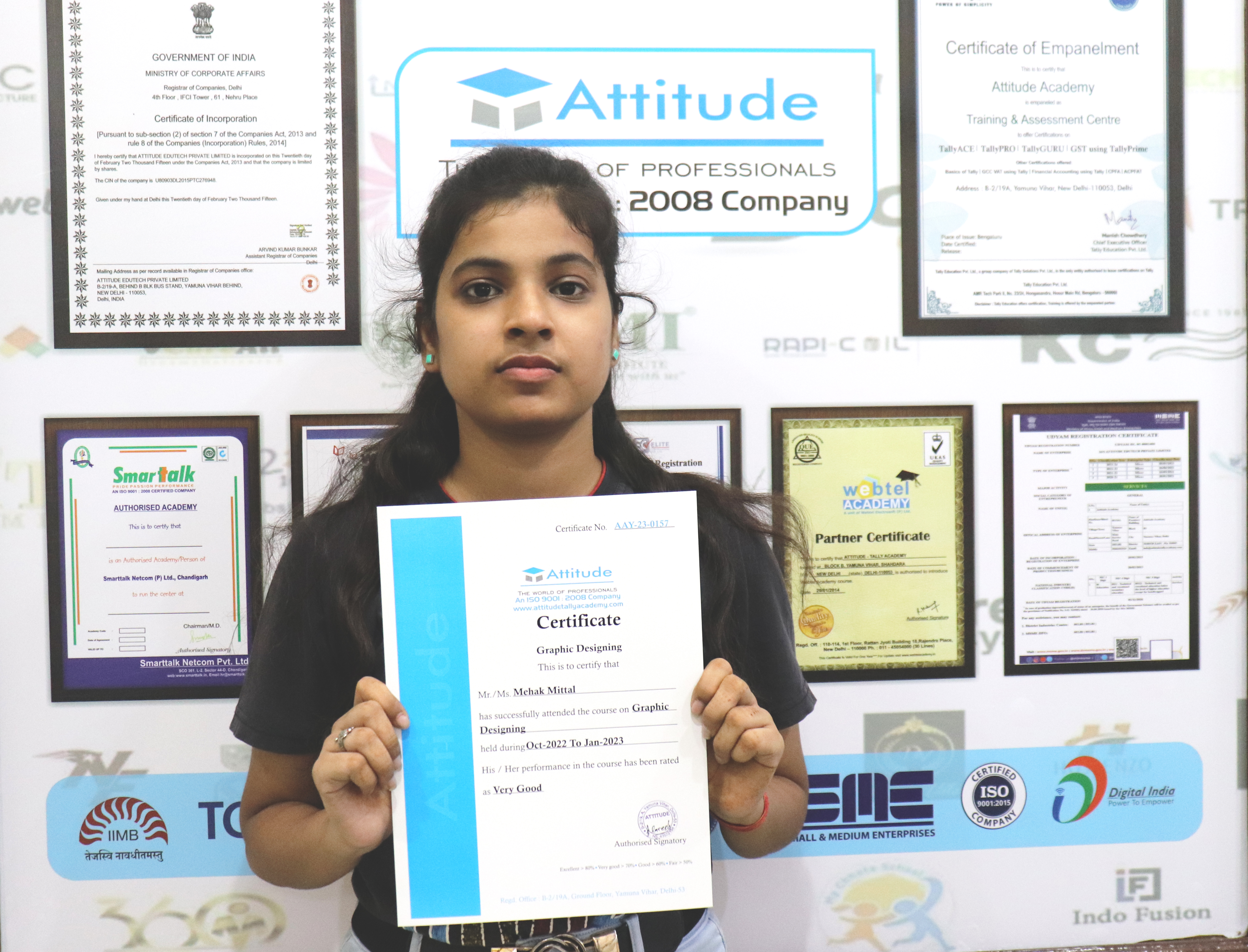
I had enrolled in the Graphic Designing training Course. The course was well taught by the trainer and the learning environment was great. they provide best and updated Study material and Give training on real industry assignments , they gi
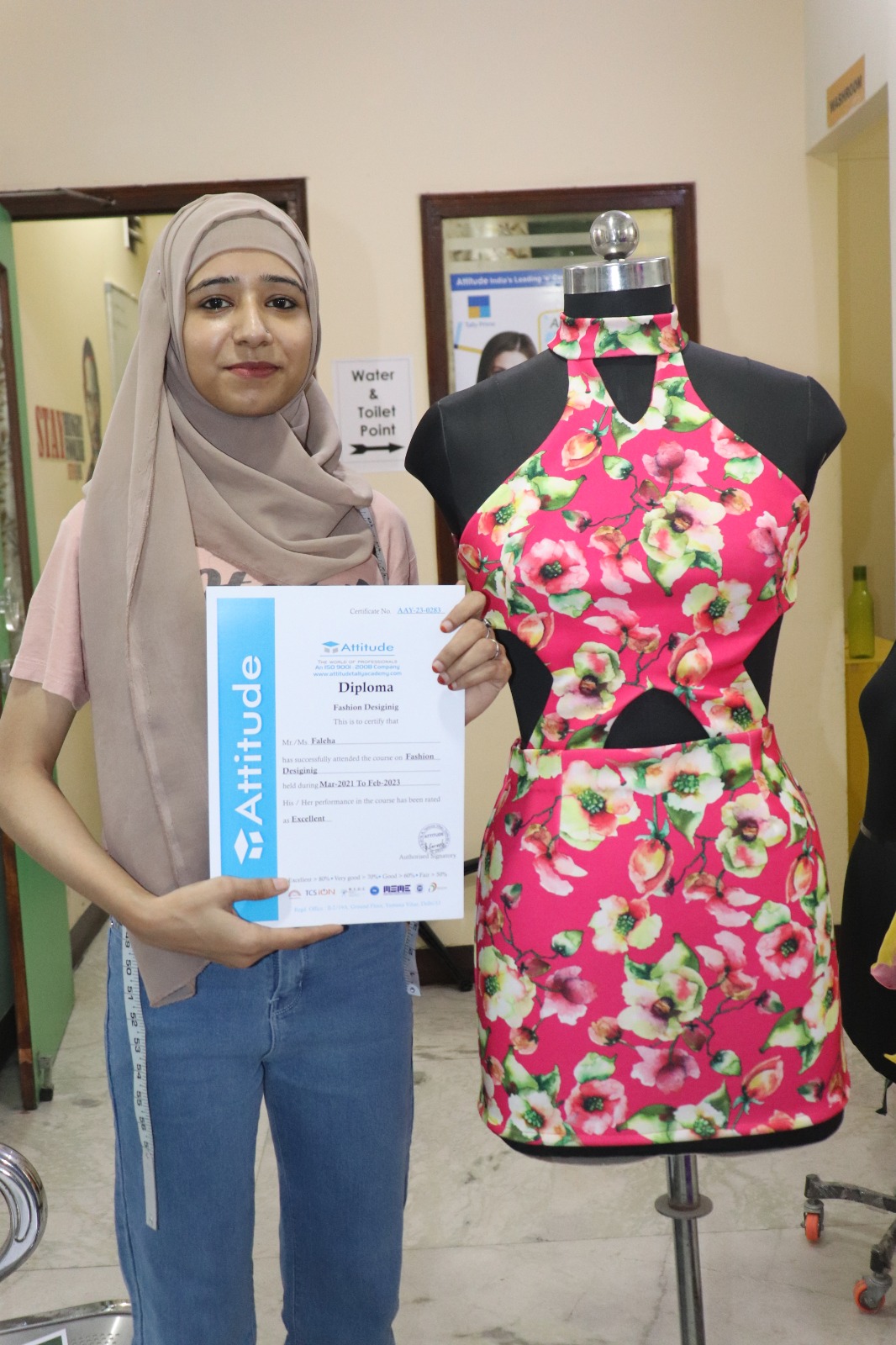
It has been a great experience for me to take fashion and dress designing training from attitude academy. I have taken fashion and dress designing course .the trainer especially anjali mam is very good and has good knowledge. I have also go
I recently completed the Interior Designing training course at Attitude Academy, and it exceeded my expectations. The trainer's expertise and the excellent learning environment made the experience remarkable. The study material was top-notc
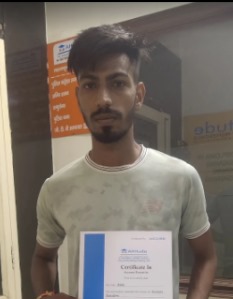
It has been a great experience for me to take Autocad 3d's Max training from Attitude Academy. I have taken Autocad course. The trainer especially Sumit Sir is very good and has good knowledge. I have also got a placement from here. The pla

I had enrolled in the Interior Designing training Course. The course was well taught by the trainer and the learning environment was great. they provide best and updated Study material and Give training on real industry assignments , they
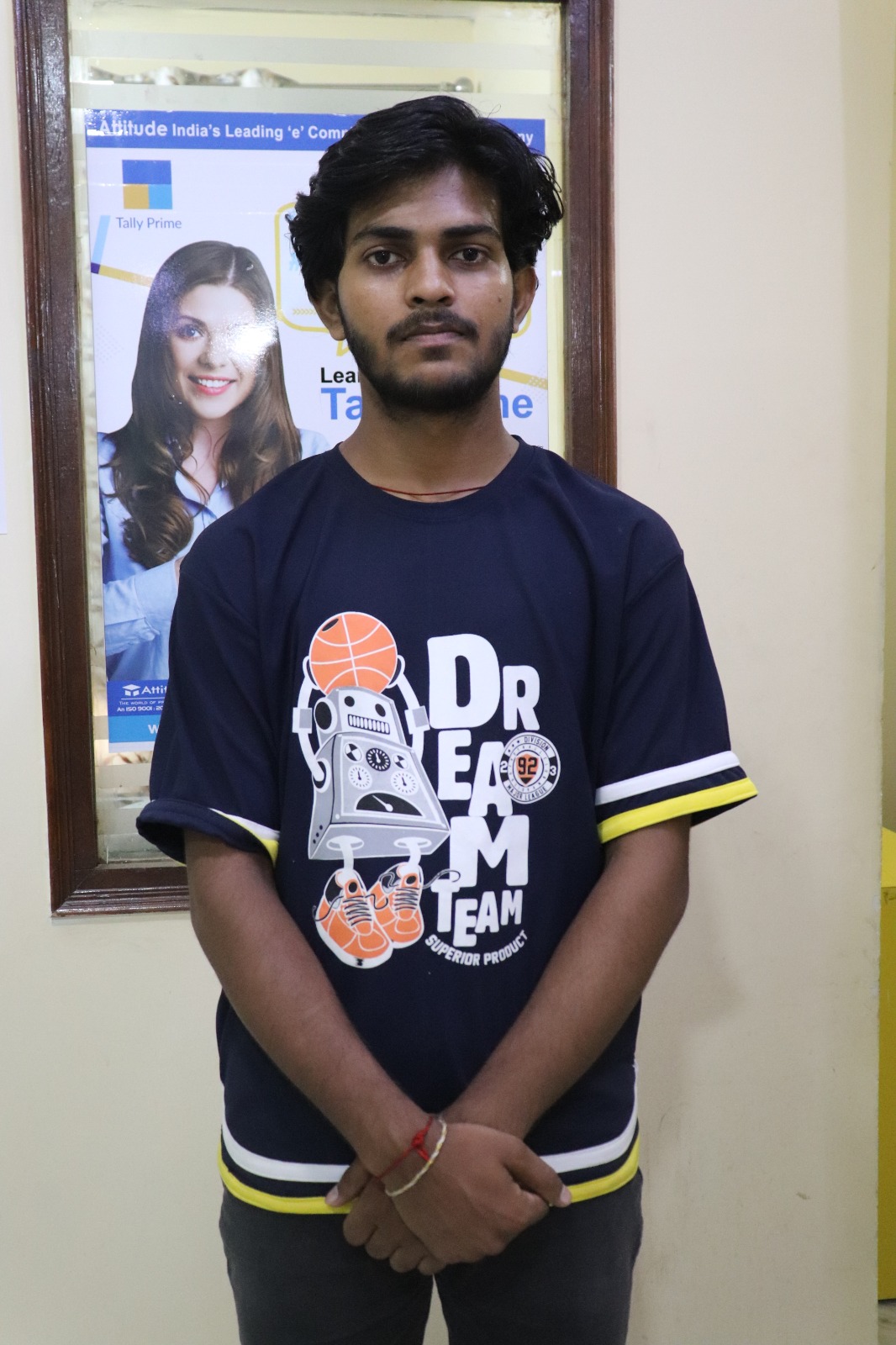
It was such a great experience to study AutoCAD course, I have learned a lot about my strengths and weaknesses with the help of my amazing tutors. Now I believe I am more capable of teaching different skills effectively.
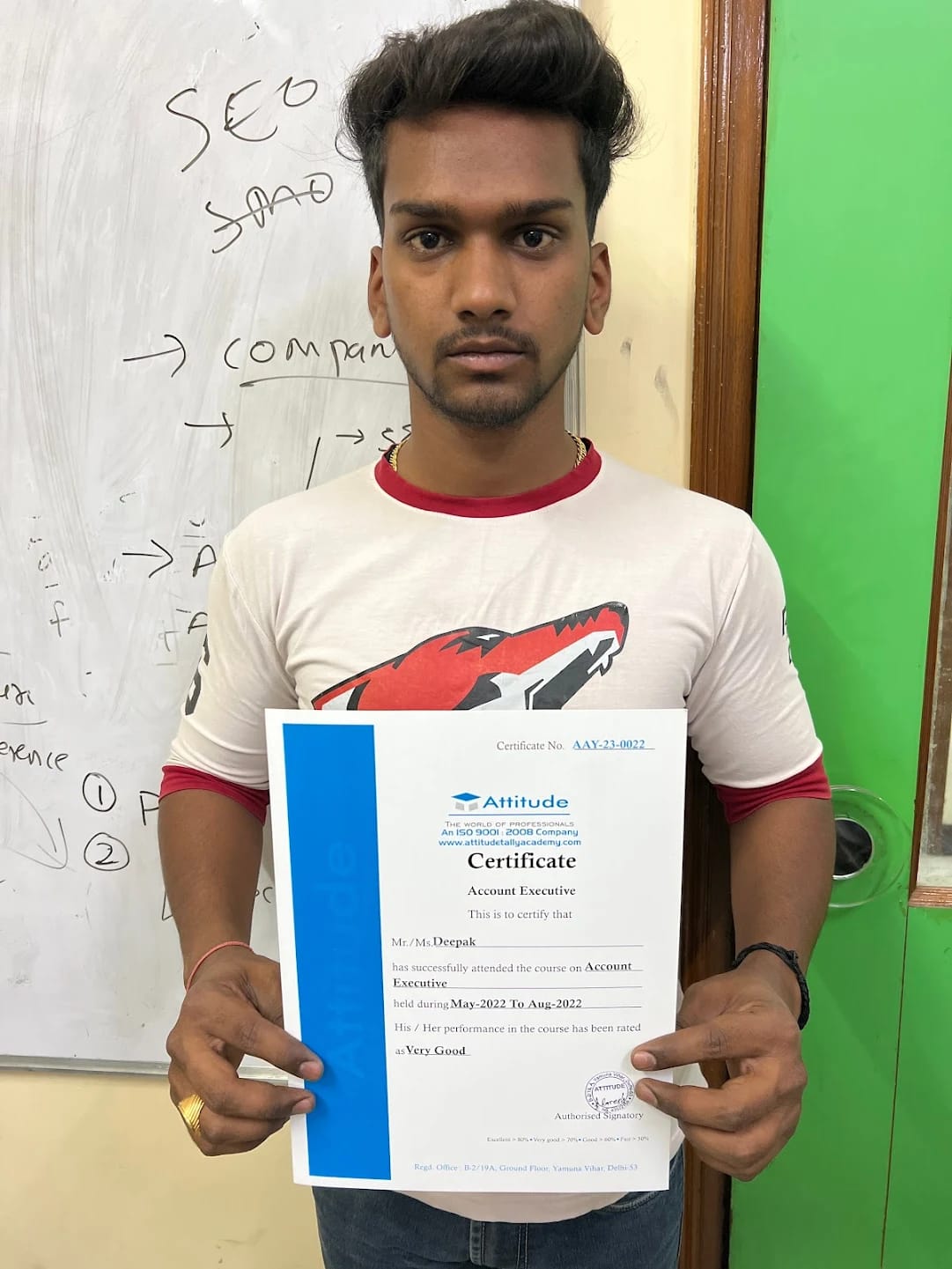
Being a student at Attitude Academy Yamuna Vihar as a super over experience. I am perceiving in financial accounting course I spend six month in this institute. I learnt so many things here there is not been academic also extra curriculum a
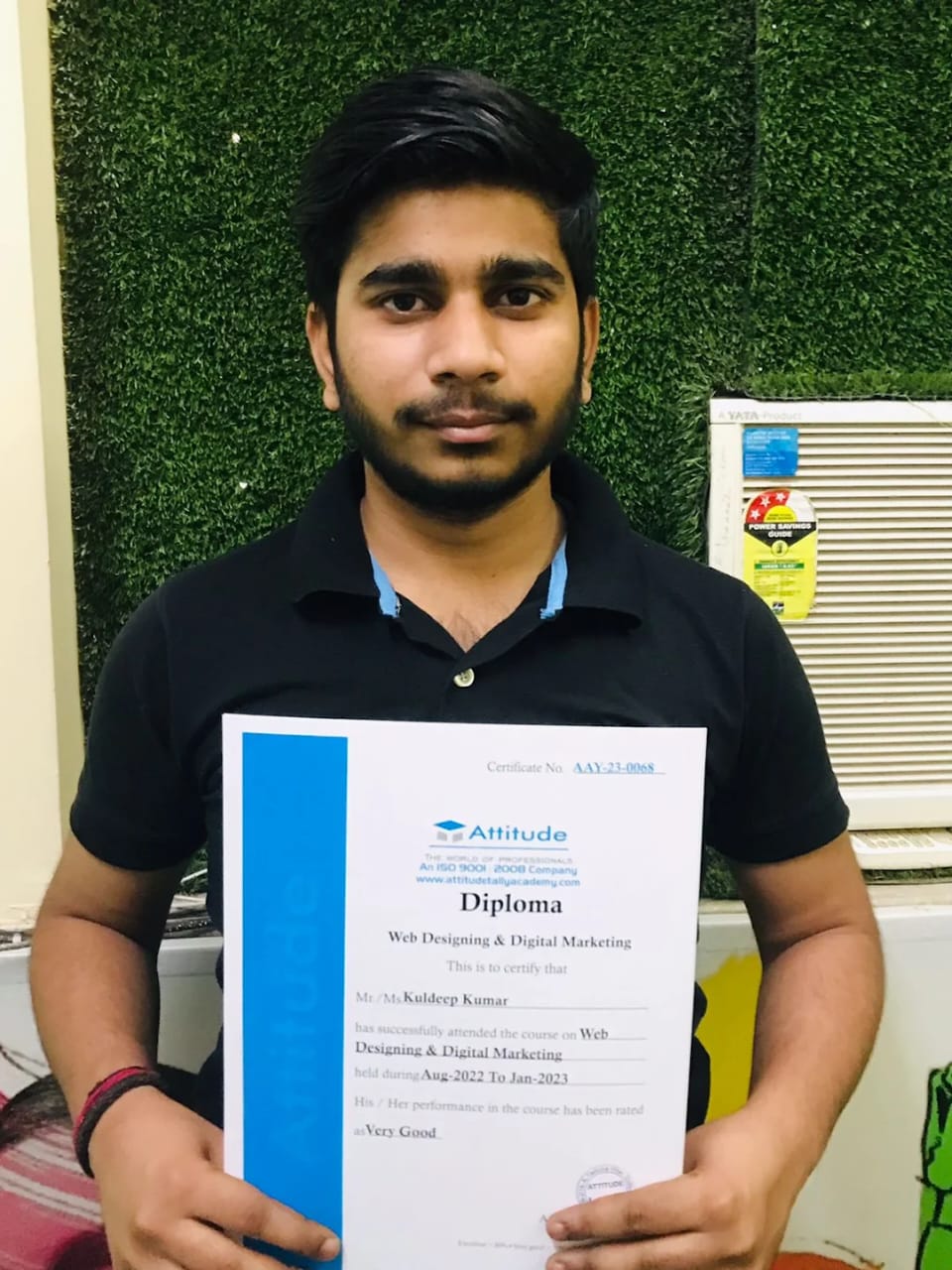
It has been a great experience for me to take Digital Marketing training from Attitude Academy. I have taken Digital Marketing Classes. The trainer especially Naresh Sir is very good and has good knowledge. I have also got a placement from

Had a great experience with the course, the classes touch upon both the functional and theoretical aspects of programming, and the care in responding to questions as well as obvious dedication to continue updating and improving the course a

While starting the course I was lacking motivation but as I learned to go with flow and explored different topics, faculty at Attitude Academy helped me by taking care of all the doubts. Thus, ensuring my clarity in the subjects.

My experience with Attitude Academy has been great. Now, I can say that I have a strong foundation in programming, This course gave me a taste of developing websites which helped me build some interesting projects for my portfolio.

Best academy for smart courses and good facilities

i am an accountant by profession and the hole credit goes to Attitude tally academy , specially Turab sir.. here i got basic to excellence knowledge of accounting
Wonderful dresses I am stitching for myself, my family and the institute, after learning dress designing from this institute. So happy...
Best FD and DD, I am doing 6 months course from here, Anjali and Divya mam are best. Such an experienced and great faculty of fashion and dress designing here.
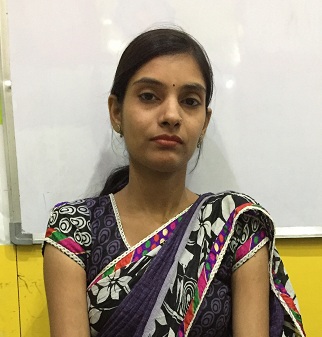
I have Completed my Tally.ERP9 Course with good experience. And now I feel that I am very confident about my interview and job.